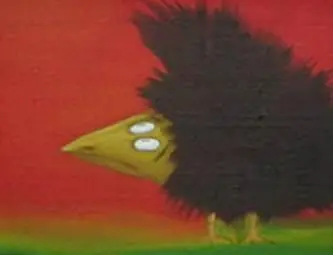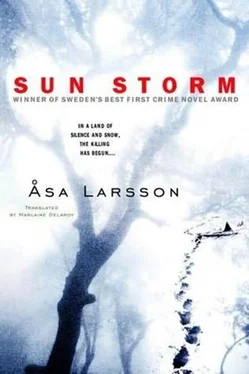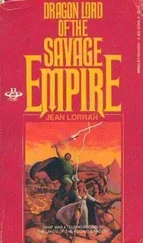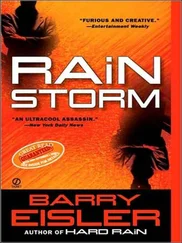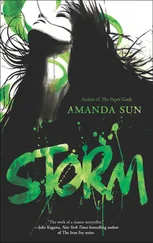Rebecka turned her head away and released her hold on Sanna, almost threw the white hand away from her.
“Tired,” she said.
In a flash Måns and Sven-Erik were by the bed. Each of them bade a silent farewell to Sanna. Mans jerked his head. Sven-Erik gave a brief nod, and smiled. They swapped places. Måns grabbed hold of the bed and Sven-Erik took the drip. Without a word they pushed Rebecka off down the corridor.
Sanna Strandgård stood there watching them as they disappeared around the corner. She leaned against the closed door.
In the summer, thought Sanna, I’ll take the girls on a cycling holiday. I’ll borrow a trailer for Lova. Sara will be all right on her own bike. We can cycle down through Tornedalen, they’d like that.
Sven-Erik said good-bye and disappeared in the opposite direction. Måns pressed the elevator button, and the door slid open with a ping. He swore as he banged the bed against one of the walls. He stretched out for the drip, keeping one leg in front of the electronic eye at the same time so the door wouldn’t close. The unaccustomed gymnastics made him breathless. He was dying for a Scotch. He looked at Rebecka. Her eyes were closed. Maybe she’d fallen asleep.
“Do you think you can put up with this?” he asked with a crooked smile. “Being pushed around by an old man?”
From a loudspeaker in the ceiling a metallic voice announced “Third floor,” and the elevator door slid open.
Rebecka didn’t open her eyes.
You carry on pushing, she thought. I can’t afford to be choosy. I’ll take what I can get.
And evening came and morning came, the seventh day
Anna-Maria Mella is kneeling on the bed in the delivery room. She is hanging on to the steel bars of the headboard so tightly that her knuckles are white. She pushes her face into the gas mask and breathes deeply. Robert is stroking her sweat-drenched hair.
“Now,” she yells. “It’s coming now!”
The labor pains are like an avalanche rushing down the side of a mountain. All she can do is go with them. She squeezes and pushes and bears down.
Two midwives are standing behind her. They are shouting and cheering as if she were their winning horse in a trotting race.
“Come on, Anna-Maria! One more time! Just once more! You’re such a good girl!”
It burns like fire when the child’s head starts to emerge. And then, when the head is finally out, the child slides out of her like a slippery salmon in a stream.
She hasn’t the energy to turn around. But she hears the furious, demanding cry.
Robert takes hold of her head in both his hands and kisses her smack in the middle of her face. He is crying.
“You did it!” he laughs through his tears. “It’s a little boy!”
Rebecka Martinsson will be back, she’s not that easy to get rid of. Just give her a little time.
Remember that this story is made up, and so are the characters. Some places in the book are also invented: for example, the Crystal Church and the stairwell in the Söderberg family house.
There are many people to thank, and I would like to mention some of them here. Jur. Kand. Karina Lundström, who in her former life was a police investigator and used to be known as Kritan. I asked her about guns and police databases, for example. Deputy Magistrate Viktoria Lindgren and Councillor Maria Widebäck. Senior doctor Jan Lindberg and autopsy technician Kjell Edh, who contributed to the description of the dead man and the autopsy room. Birgitta Holmgren, for information about psychiatric care in Kiruna. Shiitake grower Sven-Ivan Mella, for all the stuff about mushrooms and the mine and the man who disappeared.
Any errors in the book are mine. There are certain things I didn’t ask the people named above, certain things I’ve misunderstood, and sometimes I just decided to go my own way. For me the most important thing has been to make my lies credible, and when there was a conflict between the story and reality, the story won-every time.
Thanks also to: the literary surgical team-Hans-Olov Öberg, Marcus Tull and Sören Bondeson (who have sighed, groaned, shaken their heads and on the odd occasion grunted approvingly). Publisher Gunnar Nirstedt, for his opinions. Thanks to Elisabeth Ohlson-Wallin and John Eyre. My mother and Eva Jensen, who kept shouting, “Write faster,” and thought EVERYTHING was BRILLIANT. Lena Andersson and Thomas Karlsen Andersson, for friendship and hospitality whenever I’ve been in Kiruna.
And finally: Per. Lead the tiger away…
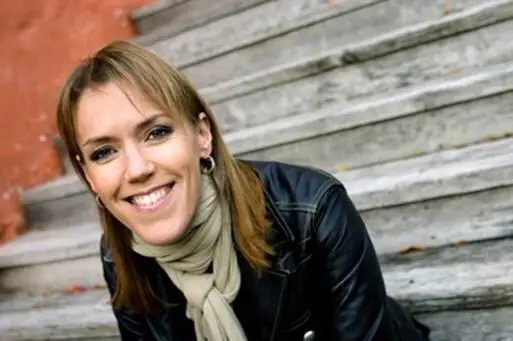
Åsa Larsson was born in Kiruna, Sweden, in 1966. The Savage Altar won Sweden’s Best First Crime Novel Award. Åsa Larsson’s second novel, The Blood Spilt, will be published by Viking in 2008.
***
